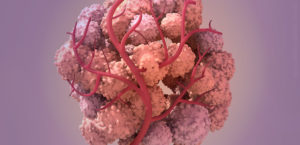Articles & Webinars
A cell contains thousands of lipids. Lipidomics reports the precise lipid composition of a sample to fuel research and progress in all biology related fields.
-
 Article
ArticleLipid metabolism & microbiome of dry skin
Application of a moisturizing body lotion to dry skin improves barrier properties and alters ceramide profile and skin microbiome.
-
 Article
ArticleLipid metabolism impacts remyelination
Remyelination requires orchestrated lipid droplets formation and cholesterol esterification by microglia.
-
 Article
ArticleT cell function & lipid metabolism
Activation of LXR in T helper cells alters lipid metabolism, reduces membrane order, and modifies the immune response.
-
 Article
ArticleWhat is multiomics?
Multiomics analyses of well-studied diseases can reveal molecular pathways, identify biomarkers, and improve predictive models.
-
 Article
ArticleMultiomics analysis of cancer chemotherapy sensitivity
LDLR expression influences ovarian cancer cells’ lipid profiles and sensitivity to platinum-based chemotherapy.
-
 Article
ArticleCardiolipin synthesis & protein import during mtUPR
The mtUPR in yeast exhibits an initial increase in protein import, which is accompanied by cardiolipin synthesis and remodeling.
-
 Article
ArticleChain length impacts membrane fluidity
Yeast adapts to the absence of phosphatidylcholine by changing lipid composition to restore membrane fluidity.
-
 Article
ArticleAnorexia, refeeding & lipid metabolism
The plasma lipidome in anorexia patients before and after refeeding therapy exhibits dysregulated lipid metabolism.
-
 Article
ArticleInsulin sensitivity & circadian lipid metabolism
The plasma lipid profile depends on meal timing and composition and is associated with insulin sensitivity.
-
 Article
ArticleCancer, hypoxia & mitochondria lipids
The enzyme PTPMT1, which synthesizes the mitochondrial lipid cardiolipin, helps cancer cells adapt to hypoxia.
-
 Article
ArticleMultiomics profiling of Alzheimer’s disease
Multiomics analyses with lipidomics reveal molecular pathways in Alzheimer’s disease to improve predictive power.
-
 Article
ArticleClinical indicators of metabolic obesity
Metabolic indicators in the plasma lipidome can classify obesity status more accurately than standard metrics.
Happy Researchers, Happy Life!
But they can tell you more. Access the Lipidomics Resource Center to study all publications with Lipotype technology.